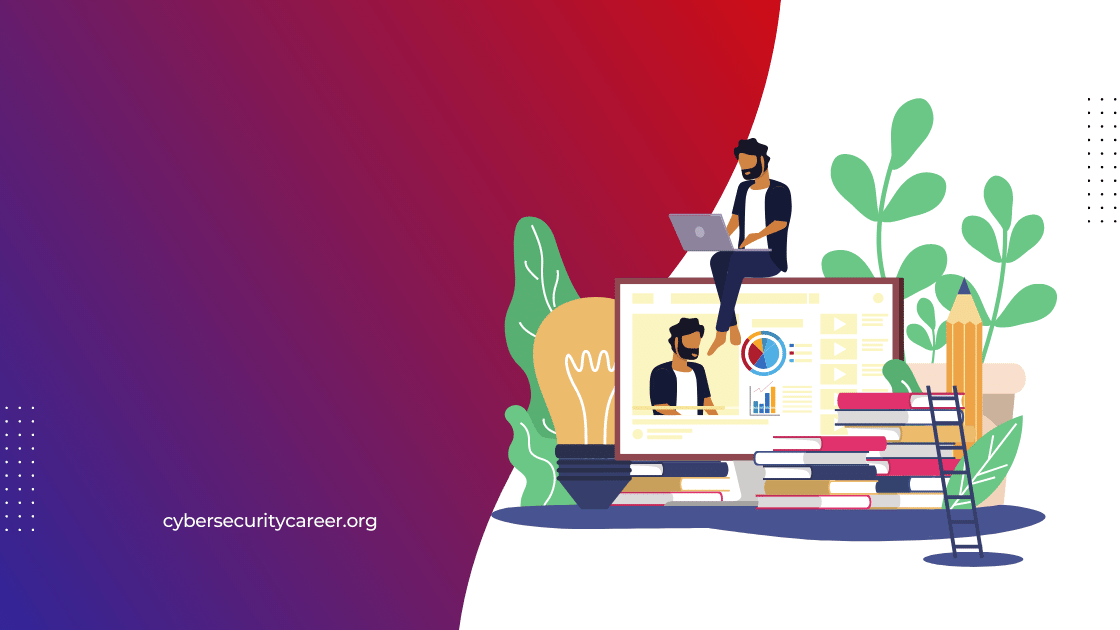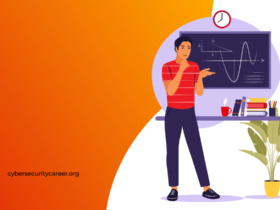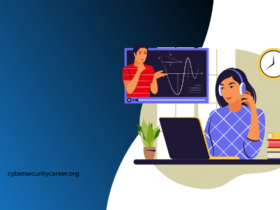Cyber security is a critical part of any business. Not only does it protect your company from cyber attacks, but it also protects your customers’ data. But what exactly is confidentiality in cyber security? In this blog post, we will explore what confidentiality means in cyber security and how to protect it. We will also discuss the different types of data that are protected and the methods used to protect them.
Cyber security Confidentiality
Confidentiality is one of the key tenets of cyber security. This means that confidential information must be protected from unauthorized access or use. Information can be considered confidential if it is marked as such and if it is not intended for public release.
Maintaining confidentiality in cyber security requires several steps. First, sensitive data should be encrypted to prevent unauthorized access. Next, access to sensitive data should be limited to only those who need it to perform their job functions. Finally, all employees should be aware of their responsibilities and keep updated on security policies and procedures.
Cyber security Threats and How to Protect Yourself?
Confidentiality is one of the key tenets of cyber security. It is important that any information you share with a cyber security provider be kept confidential, in order to protect your data from being accessed or stolen by third parties. There are several ways to keep your data confidential:
Use a password manager: This is a great way to keep track of all the passwords you use for different websites and services, so that if one falls into the wrong hands, it’s less likely that they will be able to access your accounts.
Encrypt your files: If you have sensitive information that you want to keep safe from prying eyes, you can encrypt it using a secure encryption program. This will help ensure that even if someone does manage to obtain the information, they won’t be able to decipher it without the right tools.
Use two-factor authentication: Two-factor authentication is a security measure that requires users to enter not only their username and password, but also another form of verification, such as a physical token or an app on their smartphone. This helps ensure that no one else except those authorized by the user can access their account.
Keep up with regular updates: Make sure you are up-to-date on all the latest cyber security threats and how to protect yourself. Regular software and firmware updates can help patch potential vulnerabilities in your computer and online accounts, making them more difficult for would-be hackers to exploit.
Tips for Protecting Your Private Data
In today’s world, cyber security is a top priority for businesses of all sizes. Protecting your private data is key to maintaining confidentiality and preventing breaches. Here are five tips for safeguarding your confidential information:
- Establish clear guidelines for data handling and encryption. Make sure everyone involved in data processing understands the policy and procedures, and follows them strictly. This will help to prevent unauthorized access or disclosure of your confidential information.
- Use strong passwords and keep them up-to-date. Make sure you create complex passwords that are at least 8 characters long, contain at least one number and one special character, and are not easily guessable. Also, be sure to change your password regularly – every 2–3 months is a good rule of thumb – in order to make it harder for someone to break into your account.
- Guard against unauthorized access to your computer systems. Keep all software up-to-date, install anti-virus protection software, and keep all devices connected to your computer secure by using firewalls and virus checking software. In addition, always back up important files frequently in case of an emergency.
- Keep sensitive documents encrypted when storing them on computers or removable storage media (such as flash drives). This will help protect them from unauthorized access if they fall into the wrong hands.
- Inform customers who may have access to your confidential information about the cybersecurity precautions you’ve taken and the steps they need to take in order to protect their data. This will help ensure that they are aware of the risks and are taking appropriate precautions to safeguard their information.
How to Handle a Breach If It Happens?
If you are a business owner or manager, it is important that you understand the concept of confidentiality in cyber security. Confidentiality is the cornerstone of protecting your business information from unauthorized access.
There are a number of ways to protect your confidential information:
- Use strong passwords and keep them confidential.
- Keep all important files and data on encrypted storage devices.
- Regularly back up your data using an external storage device or cloud service.
- Have a policy in place that strictly prohibits employees from accessing your confidential information without proper authorization.
What Is In Confidentiality?
Confidentiality is one of the most important aspects of cyber security. This means that any information that is meant to be kept confidential should be protected from unauthorized access. When it comes to data, confidentiality can range from the specific details of a breach to the identity of a source. In order for data to be considered confidential, it must meet certain criteria, including being secret and necessary for the proper functioning of an organization.
Information that is meant to be confidential may be classified according to its sensitivity. Critical information, for example, is typically considered more sensitive than non-critical data. Data that is considered confidential may also require special protection measures, such as password-protected files or encryption software. Organizations should always take steps to protect their data from unauthorized access and use stringent measures when it comes to protecting sensitive information.
What Is Not In Confidentiality?
Confidentiality is an important part of cyber security. If a person’s information is confidential, it means that the information is not supposed to be shared with other people or organizations. This information can include things like financial data, personal health records, and government secrets.
There are a few different ways that confidentiality can be protected in cyber security. One way is to make sure that all of the computers and networks that have access to the confidential information are physically secure. Another way is to use encryption technology to protect the data from being accessed by unauthorized people.
It’s important to remember that even if confidentiality is strictly enforced, there’s always a chance that someone will leak confidential information. However, by taking precautions and working together as a team, we can minimize the chances of this happening.
How Does Cyber Security protect confidentiality?
Confidentiality is one of the core principles of cyber security. It means that information should be kept confidential so that it cannot be accessed or used by unauthorized individuals. Cyber security professionals depend on confidentiality to protect their data, networks, and computers from attack.
There are several ways that confidentiality can be protect in cyber security. One way is to use passwords and other authentication measures to ensure only authorized users have access to sensitive data. Another approach is to encrypt information using cryptographic methods such as hashing and secret key sharing. Finally, data can be physically stored in a secure location or securely transmitted over an insecure network.
Conclusion
Whether you are an individual or a business, the confidentiality of your data is important to you. In today’s world, where cyber threats are becoming more prevalent and sophisticated by the day, maintaining your privacy and protecting your confidential information is of the utmost importance. Here are some tips on how to maintain confidentiality in cyber security: 1) Educate yourself as much as possible about cyber threats and how to protect yourself. 2) Use strong passwords that are unique for each site and make sure to change them regularly. 3) Keep all your devices secure—from computers to phones to tablets—and be mindful when accessing sensitive files and applications. 4) Use encryption software whenever possible to protect your data from unauthorized access.










Leave a Reply